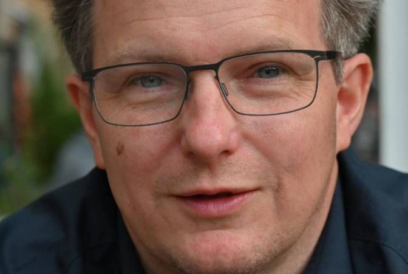

The media is full of conversation and articles about health with various opinions and methods. Some of them are true and some only groundless nonsense or even harmful advice. Voluntary medicine students are now fighting against the health lies in Finland. The text is a column written for issue 4/2018 on Adult Education and Health.
Last autumn, there was a claim spreading in social media that Black Salve, zink chloride cream, can cure melanoma when applied to the skin.
In fact, Black Salve is carcinogenic and, when applied to skin, burns and destroys the skin leaving a big black scar.
Another example – some people drink colloidal silver when feeling sick, because they believe it will kill bacteria. In fact, drinking it can cause bleeding, cramps and other symptoms of intoxication.
If these cases sound a bit extreme, here is one identifiable for Europeans from many different countries: in Western Finland it is becoming more common not to vaccinate children because of the possible side-effects and additional ingredients.
YET, THESE EXAMPLES ARE JUST THE TIP OF THE ICEBERG, as the same phenomenon is rearing its head throughout Europe. People are starting to question authorities and prefer experience-based views and methods.
Some people call themselves self-educated experts on any health issue, having only read a few studies on the internet. They have strong claims that have no scientific facts to back them up. These opinion leaders offer easy answers to common health questions, which are effortlessly accessible in social media.
It is easier to rely on these simple answers instead of reading a lot of large and heavy studies and literature reviews.
In addition to self-educated influencers, the media sometimes dramatises the causal connections of research results and reports only the parts of the studies that sound interesting. New spectacular discoveries always hit the headlines, no matter if the same media has written the opposite about the same topic a week before.
Lack of critical thinking is the major reason why people trust groundless claims. Some patients might refuse to be treated medically and turn to alternative options that might even damage their health.
THIS ALARMING PHENOMENON has made me and many of my fellow students worried about the amount of groundless health claims filling the media.
Especially nowadays, when the internet and social media spread information effectively, it is important to teach people to separate reliable facts from nonsense. Sometimes it can be hard even for specialists to know what information can be trusted, so no doubt it can be hard for others too!
That is the reason we founded the Vastalääke (i.e. Antidote) association to fight against health nonsense. The mission of Vastalääke is to offer fact-based but understandable answers for everyone interested in health. For this, Vastalääke partners in a project facilitated by the Finnish Lifelong Learning Foundation. The project organizes education for medical students on critical thinking and writing scientific texts in layman’s terms so that everyone can understand them.
The association was formed by student volunteers and all the activities are additional to our medical studies. We get a lot of new interested members every month from all over Finland. One thing that unites us all is the feeling that this project is necessary, and all the voluntary work is being done for a good cause.
In addition to creating blog content for our website, we aim to increase dialogue between experts and citizens. One way to do this is to organise Health Café events, where we discuss various health topics in small groups. The aim is to hear the thoughts behind citizens’ points of view and to introduce dialogue. Hopefully, these conversations will increase trust in science-based knowledge and create common understanding.
Even though it is important to teach citizens how science works and how to find reliable information, I am very excited about how much I can learn myself during this project.
AS A MEDICAL STUDENT, I am especially interested in broadening my knowledge outside the medical field. The more I know as a doctor about alternative treatments, the better I can discuss with a patient, who is questioning the treatment plan, without preaching judgementally.
Furthermore, the argumentation skills I will learn in this project are going to be necessary in the future when a determined patient wants me to prescribe, for example, thyroid hormone for their tiredness, just because they have read about the effects of it in social media.
I am convinced that enthusiastic young medical students can have a significant impact on health discussion in the media. I hope that, next time a groundless and even harmful health phenomenon appears in social media, people will take a second to think critically and check the facts before trusting the opinion leaders.
The Finnish Lifelong Learning Foundation is the main publisher of Elm Magazine.
Authors







